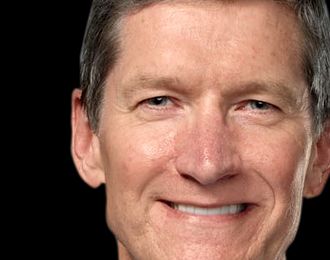Tag: techeye
Apple iWatch runs out of time
 A report claimed that Apple watches, which will launch in the first half of this year, will only have battery lives of about three and a half hours.
A report claimed that Apple watches, which will launch in the first half of this year, will only have battery lives of about three and a half hours.
US rules China, Taiwan dumping solar panels
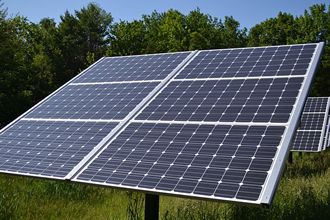 Trade protection organisation the US International Trade Commission (ITC) has confirmed that Chinese and Taiwanese manufacturers of photo voltaic products are dumping them.
Trade protection organisation the US International Trade Commission (ITC) has confirmed that Chinese and Taiwanese manufacturers of photo voltaic products are dumping them.Hutchison to buy O2
 Consolidation in the UK mobile industry is certain after Hutchison Whampoa said it will buy O2 for £10.25 billion.
Consolidation in the UK mobile industry is certain after Hutchison Whampoa said it will buy O2 for £10.25 billion.
Apple CEO gets wage rise
Solid state drive prices to topple
Speed limits of quantum computing found
 Scientists at the University of California, Berkeley, claim to have proved a relationship between energy and time that lets people calculate the “quantum speed limit”.
Scientists at the University of California, Berkeley, claim to have proved a relationship between energy and time that lets people calculate the “quantum speed limit”.Sky to auto-block web pornography
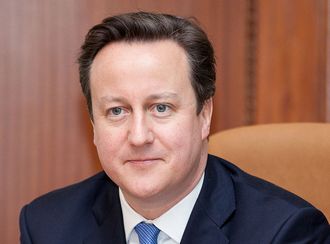 Broadband supplied by Sky will automatically stop customers from seeing pornography unless people actively opt out.
Broadband supplied by Sky will automatically stop customers from seeing pornography unless people actively opt out.
Blackberry recruits politicos for market share
 Blackberry is fighting back against its competitors by asking politicians to step into the apps business.
Blackberry is fighting back against its competitors by asking politicians to step into the apps business.
Dell, HP fight back on server prices
 A price war has developed on the server front after multinationals faced competition from original design manufacturers (ODMs) that make the machines.
A price war has developed on the server front after multinationals faced competition from original design manufacturers (ODMs) that make the machines.
Intelligent keyboard invented
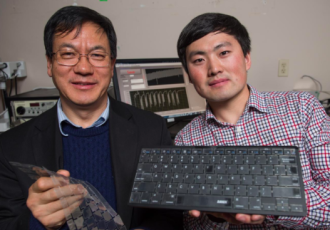 Scientists at Georgia Tech claim to have come up with an “intelligent” keyboard they believe will change the face of computing.
Scientists at Georgia Tech claim to have come up with an “intelligent” keyboard they believe will change the face of computing.
Oracle pushes out huge security update
 Database outfit Oracle has pushed out a record number of patches in a security update.
Database outfit Oracle has pushed out a record number of patches in a security update.
Included in the patch are critical fixes for Java SE and the Oracle Sun Systems Products Suite.
All up this means that the update contains nearly 170 new security vulnerability fixes, including 36 for Oracle Fusion Middleware. Twenty-eight of these may be remotely exploitable without authentication and can possibly be exploited over a network without the need for a username and password.
The worst of the bugs are in Java SE, Fujitsu M10-1, M10-4 and M10-4S. In the case of Java SE, a CVSS Base Score of 10.0 was reported for four distinct client-only vulnerabilities.
Writing in the company blog, Oracle said that out of these 19 Java vulnerabilities, 15 affect client-only installations, two affect client and server installations, and two affect JSSE installations.
The blog says that the lower number of Oracle Java SE fixes reflect the results of Oracle’s strategy for addressing security bugs affecting Java clients and improving security development practices in the Java development organization.
While that might be true, the ton of patches in the rest of the software suggests that while Java is being closely watched, other bits are not.
In the case of the Oracle Sun Systems Products Suite, CVE-2013-4784 has a CVSS rating of 10.0 and affects XCP Firmware versions prior to XCP 2232. Overall, there are 29 security fixes for the suite.
The update also includes eight new security fixes for Oracle Database Server, none of which are remotely exploitable without authentication. Oracle MySQL has nine security fixes.
There are also: 10 fixes for Oracle Enterprise Manager Grid Control; 10 for Oracle E-Business Suite; six for the Oracle Supply Chain Products Suite; seven security fixes for Oracle PeopleSoft products; 17 for Oracle Siebel CRM; one for Oracle JD Edwards Products; two for Oracle iLearning; two for Oracle Communications Applications; one for Oracle Retail Applications; one for Oracle Health Sciences Applications and 11 new security fixes for Oracle Virtualisation.
Ebay does deal with Icahn
 Online auction outfit Ebay has done a deal with its activist investor Carl Icahn that will give investors a greater say in its PayPal payments unit once it is spun off.
Online auction outfit Ebay has done a deal with its activist investor Carl Icahn that will give investors a greater say in its PayPal payments unit once it is spun off.
Ebay said it exploring a sale or public offering of its enterprise unit.
The deal clears the way for a future buy of eBay and PayPal by companies looking to gain a foothold in the e-commerce and online payments markets. Alibaba, Google and Amazon could all be interested.
Meanwhile Ebay is going to cut its workforce by seven percent, or 2,400 jobs, in the current quarter. While the company is making a pile of money, its outlook for the 2015 first quarter and full year fell short of what the cocaine nose jobs of Wall Street expected, so its workers will have to pay the price.
The planned job cuts will be across the board in all parts of the company except the board. Payments and enterprise divisions will be hit, eBay said. Restructuring and separation costs are expected to be between $210 million and $240 million in the first quarter and $350 million to $400 million for the entire year.
Also under the deal with Ichan, Icahn Capital executive Jonathan Christodoro was named to eBay’s board. He will have the ability to transition to PayPal’s board once the spin-off occurs.
Two Wall Street bankers has been added to its board, because you always need a board full of bankers.
PayPal agreed to adopt a number of measures proposed by Icahn, which the billionaire said enhance corporate governance at the fast-growing payments arm. The provisions are intended to give shareholders a larger voice in important decisions, particularly an acquisition bid.
They include a provision that any “poison pill” designed to ward off acquisition attempts be ratified by stockholders or expire after 135 days, and that holders of 20 percent of its shares be allowed to call a special meeting of stakeholders.
EBay plans to split its marketplace division from PayPal in the second half of this year. PayPal will be a standalone publicly traded company, which some analysts say will be worth $40 billion.
Many companies will miss Windows server deadline
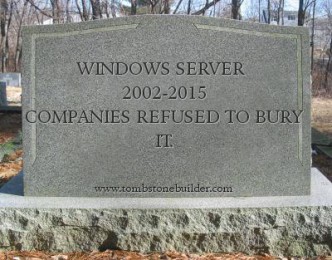 Companies are doomed to miss the end of the life of Windows Windows Server 2003, warned software experts.
Companies are doomed to miss the end of the life of Windows Windows Server 2003, warned software experts.
The server operating system will retire in six months and many companies will still have boxes running the OS when Microsoft finally kills it off.
David Mayer, the director of Microsoft Solutions for Insight said that companies had adopted an approach that “it is not broken so they did not need to fix it. It was the first really mainstream server from Microsoft, a really solid OS, and gave Microsoft a lot of credibility in server software.”
Microsoft will end security updates for Server 2003 on July 14 which should end the product’s support lifecycle. It has been supported years longer than the usual decade.
But there are still millions of machines running Server 2003, with pockets of the software in most data centres and it is a significant effort to upgrade. While getting rid of a dead XP laptop is not a problem, server replacement is tricky.
A server might contain unsupported software and the company that built them may be out of business or the in-house development team may have been disbanded. Updating this software might be impossible.
Many of those applications are 32 bit and while Windows Server 2012 R2 offers a compatibility mode to run such applications it does not always work.
Microsoft is likely to make a killing out of after-retirement support contracts, or “Custom Support,” to its largest customers. Under a Custom Support agreement, Microsoft provides patches only for the security vulnerabilities it has rated “critical,” its highest threat ranking.
This time Redmond is suggesting that its customers facing end of support to shift their servers to the cloud. However, that might be an additional change too far for many companies.
LG denies it has a fire breathing Snapdragon
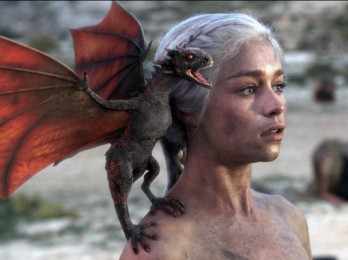 While Samsung has pulled Qualcomm’s Snapdragon 810 from its new Galaxy S smartphone, because of overheating problems, another customer is denying there is anything wrong with it.
While Samsung has pulled Qualcomm’s Snapdragon 810 from its new Galaxy S smartphone, because of overheating problems, another customer is denying there is anything wrong with it.
LG said it has encountered no overheating problems with Qualcomm Snapdragon processor and it will be powering a curved screen G Flex2 smartphone later this month.
Woo Ram-chan, LG vice president for mobile product planning, said that he was aware of the various concerns in the market about the (Snapdragon) 810, but the chip’s performance is quite satisfactory.
The comment came after Bloomberg reported a day earlier that Samsung Electronics, the world’s top smartphone maker, decided not to use the new Qualcomm processor for the next flagship Galaxy S smartphone after the chip overheated during testing. To be fair, Samsung and Qualcomm have declined to comment on the record about the reason for Samsung abandoning the chip. Sources which cite overheating are so far unnamed.
Samsung is widely expected to unveil the new Galaxy S smartphone in early March, and Bloomberg reported that the Korean firm will use its own processors instead.
Woo said on Thursday that internal tests for the G Flex2, powered by the new Qualcomm processor, show that the new product emits less heat than other existing devices. The new phone is scheduled to start selling in South Korea on January 30.
He said he didn’t understand why there is a heat problem with the Galaxy S that his phone does not have.

